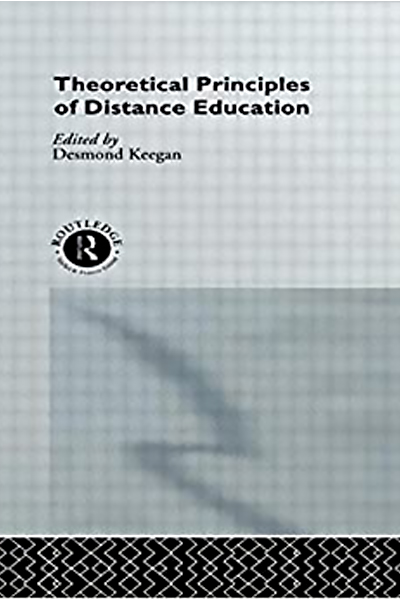 CINVU at a Glance
CINVU at a Glance
Theoretical Principles of Distance Education
Date published : 2005
Authors: Keegan, D. ,
"Introduction"; "Quality and Access in Distance Education: Theoretical Considerations"
"Theory of Transactional Distance"
"Distance Education in a Postindustrial Society
"The Evolution of Theory in Distance Education"
"Towards a Broader Conceptualization of Distance Education"
"What's Behind the Development of a Course on the Concept of Distance Education?"
"Reintegration of the Teaching Acts"
"Matching Teaching Methods to Educational Aims in Distance Education"
"Structural Analysis of Distance Education"
"The Education of Adults and Distance Education in Late Modernity"
"Understanding Distance Education"
"Distance Education: What Is It and Can It Have an Educational Future?"
"Theory and Practice in the Use of Technology in Distance Education"
"A Theory of Distance Education for the Cyberspace Era"
"Distance Training"
Desmond Keegan is an Irish academic. He attended the University College Dublin where he pursued a BA in Classical European Civilization and his MA in Medieval European Civilization. Keegan laid the foundations differentiating Distance Education from regular study. In 1979 he initiated the international journal Distance Education, which is now in its 36th year of publication. This was the first publication of its kind to focus on Distance Education as a new area of scholarship. Keegan proposed some of the fundamental issues that are still outstanding. Some of the issues include The Role of Time Synchronous Technology, Access Equity and Social Impact of Distance Education, Didactics or Skills Required by Learners and Teachers in using Electronic Technology and The Market and Willingness of Students to Partake in Electronic Classrooms.
Cite:Keegan, D. (2005). Theoretical principles of distance education. Routledge.
